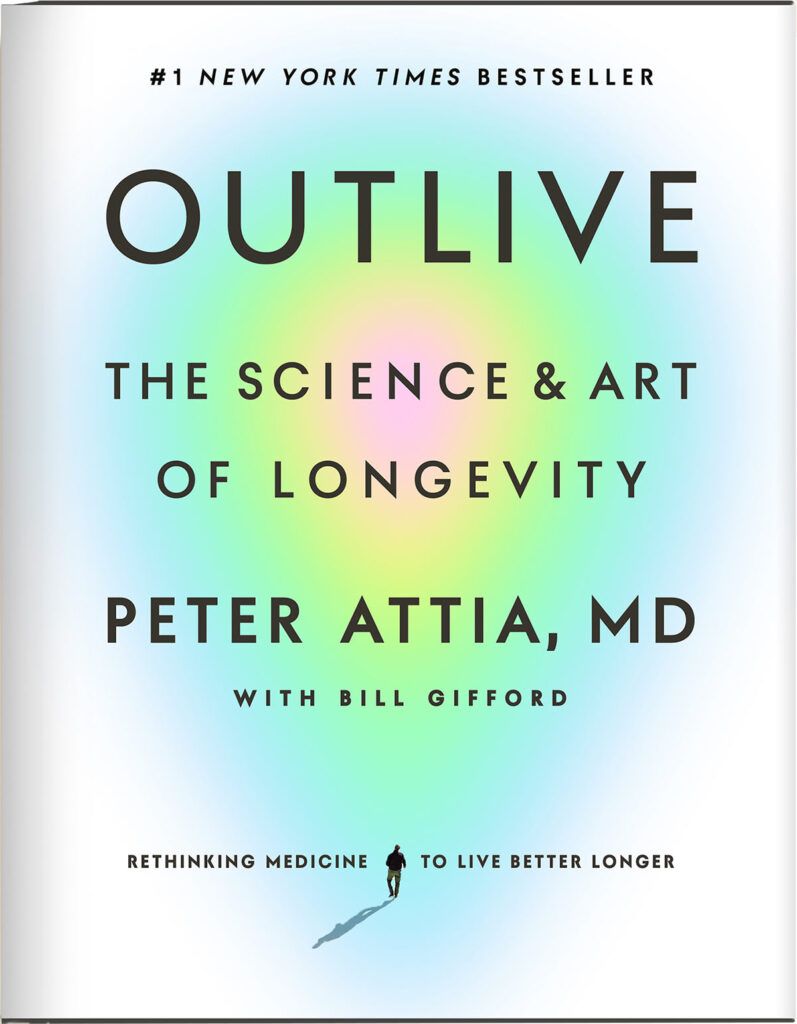I never thought I’d see a book that I’d say was the greatest ever written, let alone that it would be medical rather than fiction, but that day has come.
First a little background: it has struck me recently that when I read about my latest obsession, quality life – including both the physical and emotional aspects of the subject – I almost only find input by well-built, clear-eyed, energetic, mostly 35-50 year-old guys, all members of some reputable academic research group.
The obvious visual benefit aside, I still had two problems with my accumulating knowledge. The first one stems from my own shortcomings: I lack the deeper biochemical, physiological etc. background to be able to make the great research results I hear on each topic into one coherent body of insight, and the second one stems from the fact that while one prof swears by such-and-such diet and last meal of the day as the secret to a healthy life, another puts sleep as absolute No. 1 and everything else is just the runner-up position etc.
But then I came across Dr Peter Attia’s book Outlive, with two subtitles: “the science and art of longevity” and “rethinking medicine to live better longer”, and the writing puts much more emphasis on “better” than “longer”, i.e. it focuses on how we can live our lives in the healthiest way possible, right up to the very end, shortening the period of physical and mental decline as much as possible.
It turned out to be the first book of my life where I felt with every chapter: THIS ONE was the most important message of the book! Then came the next chapter, where the same thing repeatedJ. It’s like a party, where you can’t believe that the DJ can add a little extra with every new track, but he can, and even though you don’t have any more energy, you don’t even think of leaving the dance floor to relax.
Dr Attia’s book consists of 3 main parts. By the end of the first part, you not only feel but understand what’s wrong with medicine 2.0, which has achieved breakthroughs in many areas, such as treating viruses, but is far less effective for today’s chronic diseases – it deals with prevention primarily at the level of general guidelines, and rather focuses on the disease that has already set in (excuse me for the oversimplification).
Dr Attia compares the four biggest killers of our time to the four horsemen of the Apocalypse: heart disease, cancer, neurodegenerative diseases such as Alzheimer’s, and type 2 diabetes linked to metabolic disorders. The second part analyses these 4 areas in a level of detail that will satisfy a specialist with absolute certainty, but at the same time is also comprehensible to me (I admit I sometimes skipped the molecular and other deductions where understanding the conclusions was just enough of a task, but thanks to the absolutely practical reasoning, mission is completed).
The third major section brilliantly takes up the above areas, focusing on practical considerations. What was terribly liberating was that he does not make categorical statements beyond the facts themselves: he cites both examples and counter-examples from his own medical practice over several decades, cases where the generally working advice did work and cases where it did not, together with the reasons. He tries to teach us that it is our individual responsibility to experiment with what really works for us and for us alone – a lot of extra work, it is true, but no one will do it for you. But he doesn’t let us off the hook on this part either: he gives us concrete tips and tools on how we can narrow down our own toolbox to find what really works for us.
And a brutal surprise at the end: the chapter on emotional health. I have never read such a poignant and yet scientific account of the journey we may have to take if we are to live the healthy life we all already invest so much energy in, and to live it with joy and pleasure.
And if someone had told me before reading Outlive that there was a quote from Coelho that would make me put the master (who after 23 years of age is considered to be embarrassing to praise, at least in Hungary), on the shelf between Seneca and the Buddha, I would not have believed it. But such a quote does exist, you can find it in this book, so after reading Dr Attia’s book two more times – because it’s exactly those few hundred pages that you jump right back into after finishing them – I might buy a Coelho volume myself.
Score: 200 out of 100, no question.


